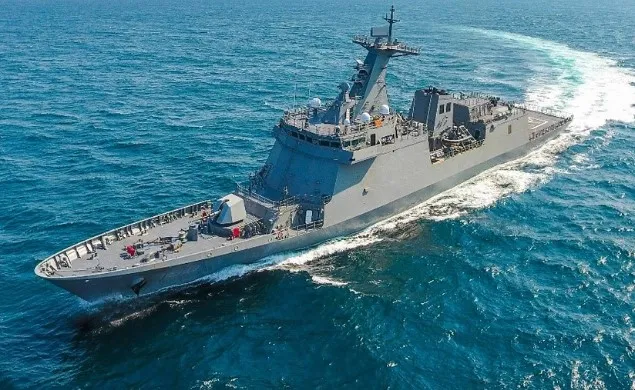 |
| Hanwha Systems Supply CMS For Philippine Navy's New Offshore Patrol Boat |
Manila - South Korean company Hanwha Systems announced it will supply its Combat Management System (CMS) and tactical data link to the Philippines. The system will be installed on six Offshore Patrol Boats (OPVs) currently being built for the Philippine Navy by South Korea's Hyundai Heavy Industries (HHI).
With an order valued at approximately $34.5 million, Hanwha Systems will equip a total of 13 Philippine Navy vessels, including all six OPVs.
Previously, on June 27, 2022, Hyundai Heavy Industries signed a contract with the Philippine Department of National Defense to build six 2,400-tonne OPV units worth US$573 million.
Regarding the CMS, this is the core system that acts as the 'brain' of the ship integrating various sensors, weapons and communication systems to recognize and comprehensively assess the battlefield situation.
According to Naval News, Hanwha Systems has supplied its CMS to the two Jose Rizal class frigates of the Philippine Navy which were also built in South Korea by HHI. Then three Del Pilar class OPVs (former Hamilton-Class Cutters) as part of the mid-term renewal program.
Version of a CMS designed to meet the unique operational requirements of OPVs. An OPV is a type of naval vessel used for patrol and surveillance missions in littoral zones, including exclusive economic zones, territorial waters, and other areas where the presence of naval forces is required.
A CMS for OPVs typically includes a range of sensors and communication devices, such as radars, sonars, and radios, as well as weapons systems, such as guns and missiles, that can be used to defend the vessel and engage with potential threats. The system also integrates with other shipboard systems, such as navigation and propulsion systems, to provide the ship's crew with a comprehensive view of the operational environment.
A CMS for OPVs must be rugged and reliable to withstand the harsh marine environment, and it must be designed to operate with limited crew resources, as OPVs typically have smaller crews compared to larger naval vessels. Additionally, the system must be easy to use and maintain to ensure the crew can operate it effectively in high-pressure situations.
CMS for OPVs are crucial for ensuring the safety and security of maritime borders and resources, and they play an essential role in maintaining maritime security.
